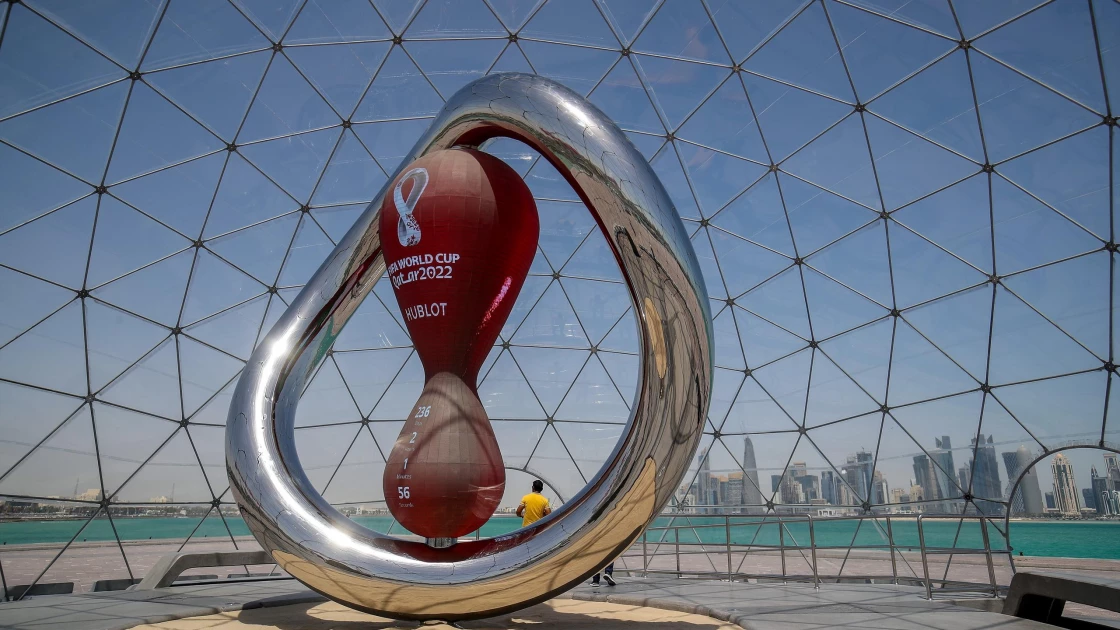Public intoxication, certain sexual activities prohibited at Qatar World Cup


Audio By Vocalize
In a travel advisory issued by the United States, fans have been advised to be wary of the cultural conduct and the existing laws governing the Gulf nation.
Fans visiting Qatar for the month-long event have been urged to acclimatize themselves to the country's way of life before traveling.
"Remember that important aspects of daily life in Qatar are different than what we are used to in the United States, due to both law and culture," read part of the statement.
Fans have been warned against engaging in a variety of activities, such as public intoxication and marijuana smoking, which can result in lengthy jail terms, even though they may have prepared themselves with ideas for how they will explore the various entertainment options in Qatar.
"Alcohol is legal in Qatar, but highly regulated and only available in limited locations, to non-Muslim non-Qatari adults aged 21+. Public intoxication can cause legal consequences, including deportation. Some venues that do serve alcohol may refuse entry or service to patrons they believe to be Muslim, regardless of the patron’s actual religion, nationality, or personal choice," read part of the statement.
"However, most hotels and restaurants catering to international patrons will serve alcohol to guests who are 21+, including via room service. Most drugs that are illegal in the United States are also illegal in Qatar, including marijuana/THC. Convicted offenders can expect long jail sentences and steep fines."
Hereunder are the rest of the precautionary measures:
Sexual intercourse outside of marriage is illegal in Qatar. As such, pregnant women must present a marriage certificate to receive prenatal care at medical facilities in Qatar. Unmarried pregnant women and victims of sexual assault should consult the U.S. Embassy prior to pursuing care.
Homosexuality is criminalized in Qatar. LGBTQI+ travelers should consult the official Department of State Travel Advisory for Qatar for more detailed information.
Activities like protests, assemblies of large groups, religious proselytizing or advocacy of atheism, and speech critical of the government of Qatar or the religion of Islam, may be criminally prosecuted in Qatar.
Qatar allows some non-Muslim religious practice in designated areas like Doha’s Religious Complex , but all faiths are not accommodated equally.
Traffic accidents and tickets are treated seriously in Qatar, and road rules differ from those in the United States.
Violations caught by traffic cameras are tracked virtually, and drivers are responsible for checking the online system regularly to learn if they owe any fines. Drivers may have a ticket on their records without ever being contacted directly. Travelers with unresolved vehicle accidents or fines may be prevented from departing Qatar.
If you plan to drive while in Qatar, read up on driver’s license requirements and the rules of the road.
Many public areas in Qatar have dress codes requiring that both men and women cover shoulders, chests, stomachs, and knees, and that tight leggings be covered by a long shirt or dress.
These attire standards can vary between neighborhoods and facilities. Many buildings require masks that cover the mouth and nose as a COVID-19 mitigation measure.
Some prescription and over-the-counter medications from the United States are unavailable or restricted in Qatar.
Confirm the legality of your medications before attempting to bring them into Qatar, especially things like stimulants and strong pain relievers. You should travel with a copy of your prescription, if applicable, and discuss a health care plan with your doctor before you travel.
Please consult Qatar’s Travel Advisory and the list of banned medicines, which can be found here and here, prior to travel.
Journalists, including independent content creators and vloggers, need specific visas and permissions to use photography and videography equipment, or to conduct interviews or reporting within Qatar. There is no legal guarantee of press freedom or freedom of expression in Qatar.


Leave a Comment